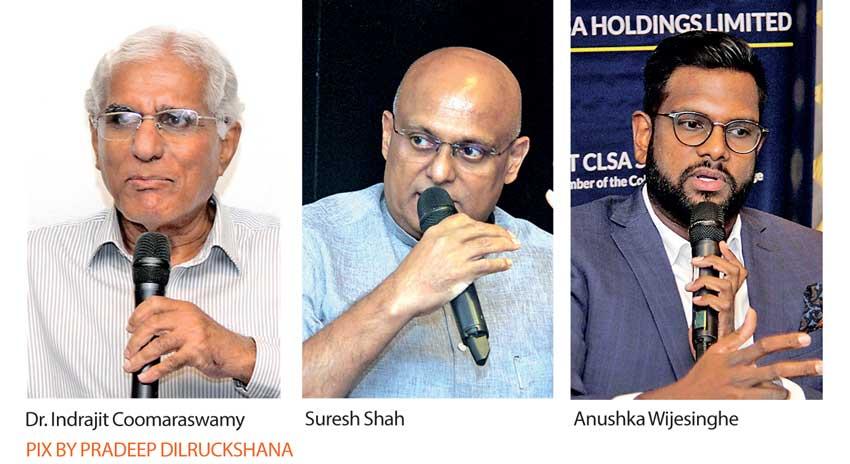29 Nov 2022 - {{hitsCtrl.values.hits}}

By Shabiya Ali Ahlam
Sri Lanka’s mismanaged economy has no choice but to get its structural reforms correct this time round or else would find itself plunging into deeper troubles that would be difficult to return from, a senior economist stressed.
Former Central Bank Governor and senior economist Dr. Indrajit Coomaraswamy said the relevant authorities must be clear in their reform agenda since, unlike in the past, the effort is being carried out at a time when the economy is contracting by 8-9 percent.
“So, this time around, if we don’t do the structural reforms, it’s chapter closed! You can’t do stabilisation as we have done in the past. There is an even higher urgency to get the structural reform done to get the growth, otherwise, we’re not going to get out of this (crisis),” Dr. Coomaraswamy told a panel discussion of an investor conference organised by CT CLSA. He highlighted a few areas Sri Lanka must prioritise to achieve economic stabilisation.
The first is moving away from the 4 percent primary deficit and bringing it down to 2.2 percent by 2025.
While stating that the overall level of expenditure is “okay”, he noted that the quality of the expenditure can be significant. Efforts are needed to switch expenditures around defence and look to allocate toward education.
The second area of priority, Dr. Coomaraswamy said, is going back to a data-driven, forward-looking monetary policy and the third is tackling corruption vulnerabilities.
Contributing to the dialogue of bringing about the necessary reforms, State-Owned Enterprises (SOE) Restructuring Unit Head Suresh Shah said the necessary discipline to the mismanaged entities must be brought in not just to fulfil the requirements of the International Monetary Fund (IMF) but because it is an absolute necessity for the national economy and its growth agenda.
“We should be doing reforms of any sort, not because of the IMF but because it’s good for us. If you take specifically SOE reforms, this is about the fifth or sixth time we are trying to do this as a country. So, what that tells is that what we have done in the past, there has been some success but it has not really been a full-blown success,” said Shah, while stressing that he is commenting in a personal capacity.
Meanwhile, with regard to increasing international trade, economist Anushka Wijesinghe asserted that the government does not have the bandwidth and required technical resources to seal multiple new free trade agreements (FTA).
Instead, efforts are needed to prioritise Sri Lanka entering the Regional Comprehensive Economic Partnership (RCEP), he said.
“The RCEP takes more work certainly but you get access to a much larger market for not only low-cost imports but also market access for exports,” said Wijesinghe.
06 Nov 2024 1 hours ago
06 Nov 2024 2 hours ago
05 Nov 2024 05 Nov 2024
05 Nov 2024 05 Nov 2024
05 Nov 2024 05 Nov 2024